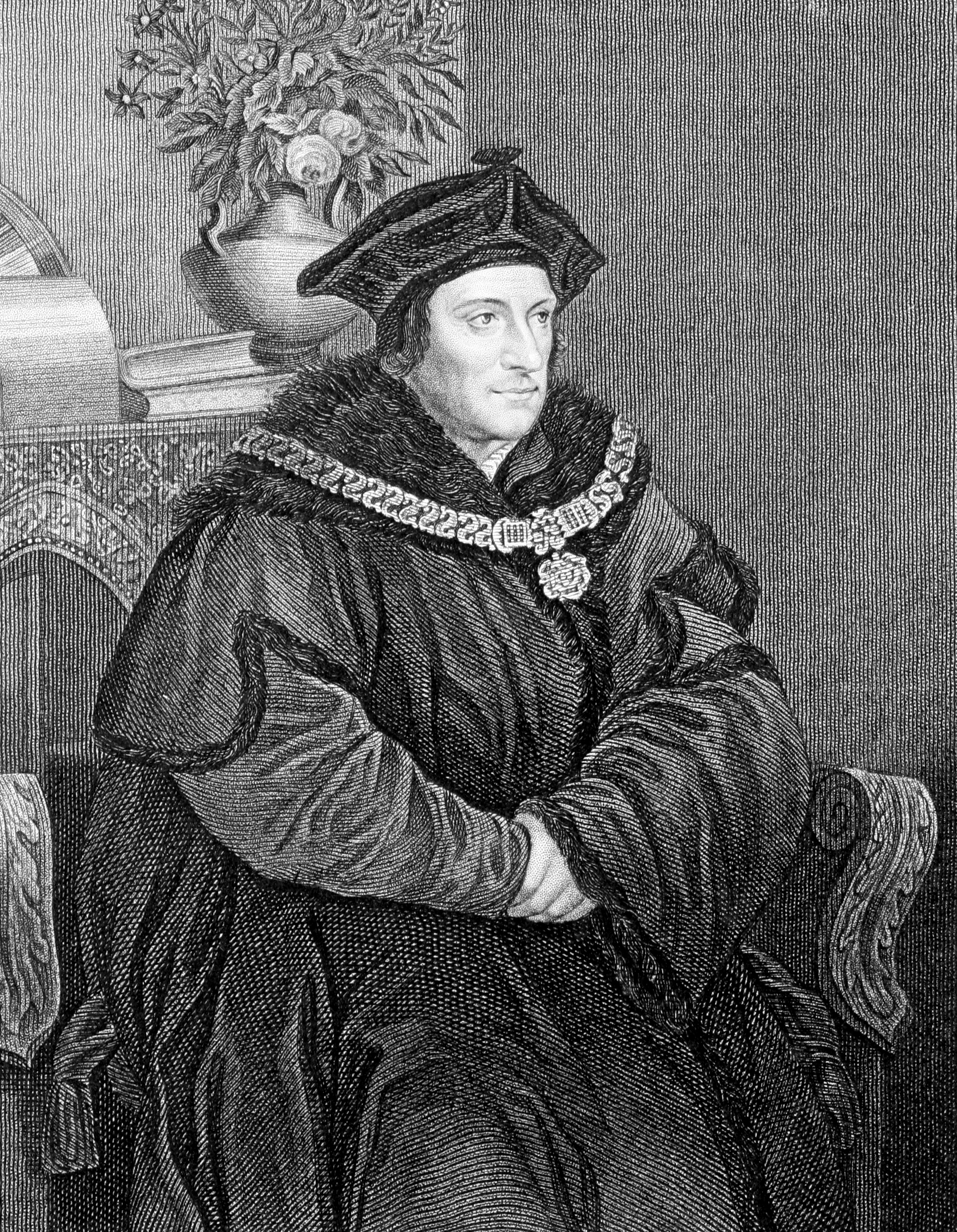More, Sir Thomas (1478-1535), was a great English author, statesman, and scholar. More served as lord chancellor, the highest judicial official in England, from 1529 to 1532. But More resigned because he opposed King Henry VIII’s plan to annul (cancel) his marriage to the queen. More was beheaded in 1535 for refusing to accept the king as head of the English church. More has become an example of the individual who places conscience above the claims of secular (nonreligious) authority. The Roman Catholic Church declared him a saint in 1935. In 2000, the church named him patron saint of statesmen and politicians.
His life.
More was born in London, on February 6 or 7 in 1478. He studied at Oxford University. More began his legal career in 1494, and became an undersheriff of London in 1510. By 1518 he had entered the service of King Henry VIII as royal councilor and ambassador. In 1521, King Henry VIII knighted More, giving him the title Sir Thomas More, and made him undertreasurer. More was chancellor of the Duchy of Lancaster from 1525 to 1529.

More became lord chancellor after Cardinal Thomas Wolsey was dismissed late in 1529. At that time, Henry VIII was engaged in a bitter battle with the Roman Catholic Church. He wanted to annul his marriage to Catherine of Aragon so he could marry Anne Boleyn. More resigned his office because he could not support the king’s policy against the pope. In April 1534, More was imprisoned for refusing to swear to the Oath of Supremacy, the preamble to a law called the Act of Succession. The oath stated that Henry VIII ranked above all foreign rulers, including the pope. More was convicted of high treason on perjured (falsely sworn) evidence and was beheaded on July 6, 1535.
Character and writings.
More’s personality combined intense concern for the problems of his day and spiritual detachment from worldly affairs. He was a devoted family man and lived a plain, simple private life. He was famed for his merry wit. Yet to the people of his day, More was a contradictory figure—he was merriest when he seemed saddest and was saddest when he appeared most happy. He was a patron of the arts. His friends included the humanist Erasmus and the artist Hans Holbein.
More’s sympathetic philosophy is best reflected in Utopia (written in Latin in 1516). Utopia is an account of an ideal society, with justice and equality for all citizens. This masterpiece gave the word utopia to European languages. More also produced much English and Latin prose and poetry. He wrote his finest English work, A Dialogue of Comfort Against Tribulation, while in prison. His other works include The History of King Richard III (written in English in 1513?) and a series of writings in Latin in which he defended the church against Protestant attacks.
